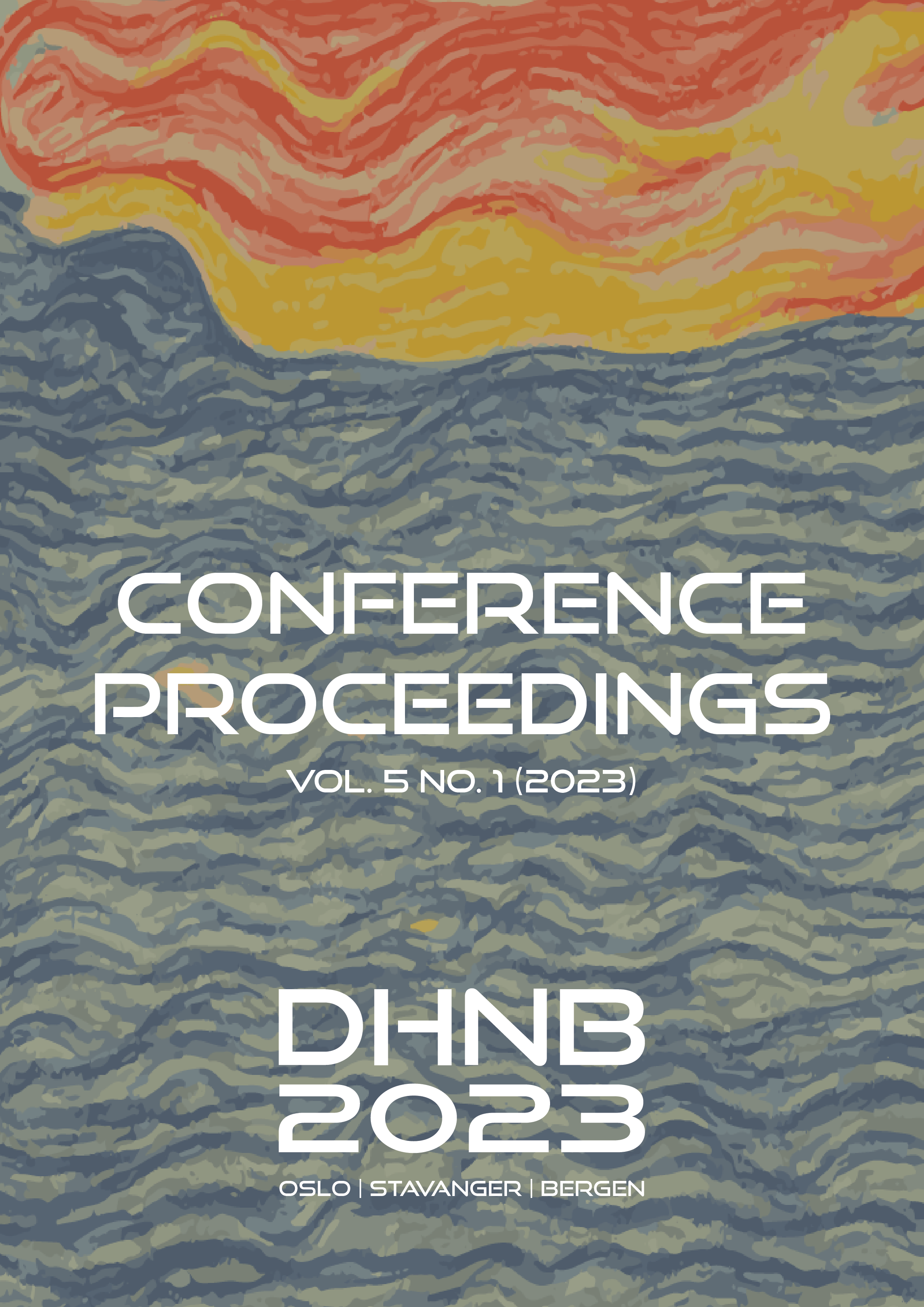The diachrony of the new political terrorism. Neologisms as discursive framing in Swedish parliamentary data 1971–2018
DOI:
https://doi.org/10.5617/dhnbpub.10651Abstract
This paper begins to unpack the framing of terrorism in the Swedish Parliament through distant reading and by chronologically extracting neologisms in a comprehensive corpus of transcripts of parliamentary debates. Combining language technology and historical contextualization, we find support for the argument that the term ‘terrorism’ gained much of its modern meaning around 1970. Specifically, our study points to a legislative framing of the issue of terrorism in Swedish parliamentary debate from the early 1970s and onwards. We also find a proliferation in the production of neologisms and compounds after 9/11 2001, reflecting, among other things, the rise of a more distinct counter-terrorism discourse and more ‘specialized’ roles and functions related to terrorism and counter-terrorism activities. The paper concludes by emphasizing the analytical benefits of tracing parliamentary discourse through neologisms as an explorative approach to identify significant patterns for further investigation.
Downloads
Published
How to Cite
Issue
Section
License
Copyright (c) 2023 Daniel Brodén, Leif-Jöran Olsson, Mats Fridlund, Magnus P Ängsal, Patrik Öhberg

This work is licensed under a Creative Commons Attribution 4.0 International License.
© CC BY 4.0
This work is licensed under a CC BY 4.0 license.



